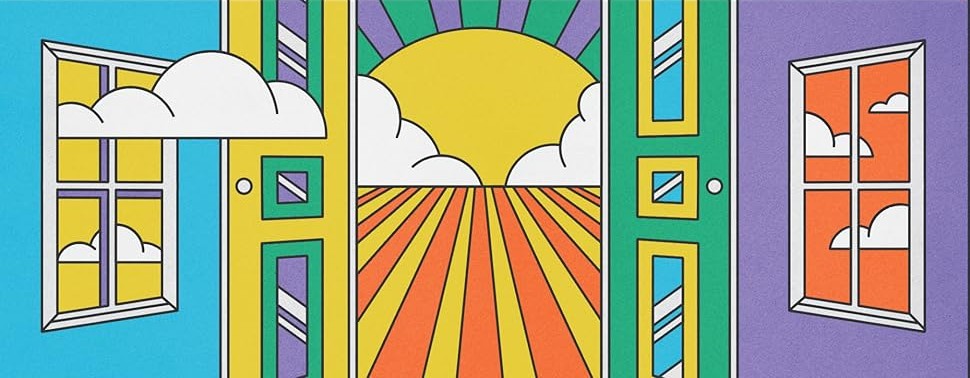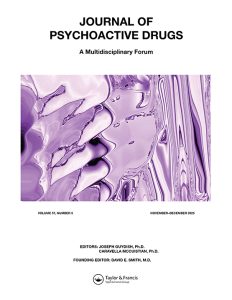
At my first recovery meeting, I couldn’t shake the feeling of being both relieved and trapped. The room was dim, the chairs arranged in a circle, and the walls were bare save for a few posters with slogans: One day at a time, Let go and let God, Keep it simple. Words I wanted to believe in, but that felt, at that moment, more like survival slogans than guiding principles. Still, I returned, meeting after meeting, clinging to the structure, the community, and the security that had eluded me for so long.
In those early days, my life was about basics—just keeping my head above water. For the first time, I had routines: meetings, work, even friendships with people who understood. It was good, but eventually, I found myself asking questions the steps alone didn’t answer. Why was it that even in sobriety, I felt haunted by the same old wounds? How was it possible to still feel so deeply alone, even surrounded by others who were on the same journey?
It was around this time that a friend pulled me aside after a meeting. “You ever thought about going deeper?” they asked, their eyes flicking around to make sure no one else could hear. “I mean, beyond the meetings, maybe exploring…other means?” They were speaking in code, but I understood. They were talking about psychedelics.
My gut reaction was resistance—years of program slogans and voices in my head telling me, Don’t do it. It’s too risky. Yet the words they’d said haunted me. A part of me yearned to go deeper, to find answers the steps couldn’t offer, to fill a void I couldn’t even explain. So, I sat with the idea in secret, wrestling with feelings of guilt and betrayal. My mind churned: What would my sponsor say? What would the others think?
Eventually, the pull was too strong to ignore. I decided that if I was going to do this, it would be in a structured way, with intention and respect. My friend introduced me to someone who held private psychedelic ceremonies. She was an older woman who exuded an ancient, grounded energy. I remember her asking if I’d be willing to meet myself fully, without pretense or guard. In that moment, I realized how much I’d been hiding, even in recovery.
My first ceremony felt like crossing a threshold. As the psychedelics began to take effect, memories surfaced—fragments of my past, but from a different angle. I saw my younger self, not through the lens of shame and regret, but with a strange compassion, almost as if I were watching someone else. I could feel the weight of trauma I hadn’t acknowledged: the disappointments, betrayals, and wounds that had slowly built up over the years.
And then, the strangest thing happened. The steps—the very ones I’d struggled with and sometimes resented—appeared in my mind, not as rigid rules, but as layers of understanding I hadn’t seen before. I understood that “making amends” wasn’t just about apologies but about healing the connection between myself and the people I’d harmed. Concepts like “turning my will over” took on a different shape, too. It wasn’t about control, as I’d once thought, but about trust. Trusting that there was wisdom beyond my own understanding, that life held more for me if I could let go of my grip on certainty.
This realization felt esoteric—like a hidden truth that had always been there but had only revealed itself now that I was ready. I had a sense of responsibility now, something that wasn’t about sobriety for sobriety’s sake but about wholeness. The experience was like peeling back the layers of a wound that I’d thought was healed, only to realize I’d only ever touched the surface.
Afterward, I was filled with an intense feeling of peace, unlike anything I’d experienced in recovery. I returned to my meetings with fresh eyes, suddenly aware of the incredible depth hidden in the simple words people shared. The twelve steps, once a rigid guide to survival, became a map for a journey of the soul. Each step revealed itself as a door to another layer of healing, another way to understand myself and my place in the world.
I had spent years afraid that stepping outside the bounds of tradition would isolate me. Instead, it connected me to those in my recovery circle in a way I hadn’t expected. Now, I see that the community wasn’t there to enforce rules but to offer a foundation, a space to return to, even as my journey took me into uncharted territory. When I finally opened up to my sponsor about my psychedelic experiences, I was surprised to find acceptance rather than judgment. They didn’t fully understand, but they supported me, recognizing that I was finding my own path, grounded in the same principles that had once saved my life.
Today, my recovery feels fuller, richer. The journey has become about more than abstaining from substances; it’s about discovering who I am beneath all the layers, all the stories, and all the fears. That word—esoteric—continues to echo in my mind, a reminder that some paths are hidden until we’re ready, that some truths require a journey before they’re revealed. And I’ve learned that sometimes, we have to go beyond what we know to come back home to ourselves, more whole than we ever thought possible.




